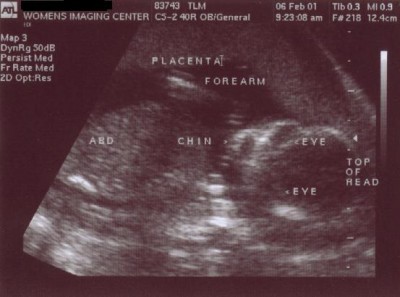 It is common to experience headaches especially during the first trimester of your pregnancy. Unfortunately if you have been prone to having tension headaches prior to your pregnancy it will not get any better during the next few months.
No one is really sure why being pregnant will increase your chances of having headaches, although it is a good guess that the changes your body experiences due to the influx of hormones plays a large factor. The chances of having headaches could also be increased by:
It is common to experience headaches especially during the first trimester of your pregnancy. Unfortunately if you have been prone to having tension headaches prior to your pregnancy it will not get any better during the next few months.
No one is really sure why being pregnant will increase your chances of having headaches, although it is a good guess that the changes your body experiences due to the influx of hormones plays a large factor. The chances of having headaches could also be increased by:
- Going cold turkey on caffeine
- Lack of sleep or general fatigue
- Sinus congestion
- Allergies
- Eyestrain
- Stress or depression
- Hunger and dehydration
Is there any medication you can take?
In most cases acetaminophen is a good choice and it is important that it is taken as directed on the label. Aspirin, ibuprofen and most prescription migraine drugs are not recommended for pregnant women. If you suffer from headaches it is a good idea to talk with your healthcare provider as to what your options are.Methods to help relieve the pain
- Find the source
- foods that contain monosodium glutamate (MSG)
- nitrites, commonly found in processed meats like hot dogs, salami, and bacon
- sulphites which are often used as a preservative for salads and also found in many dried fruits
- artificial sweeteners
- certain beans and nuts
- aged cheese and cultured dairy
- certain fresh fruits including bananas, papayas, avocados and citrus
- smoked fish
- chocolate
- glaring or flickering lights
- loud noises
- excessive heat or cold
- tobacco smoke
- Use compresses
- Take a warm shower
- Get a massage
- Avoid becoming too hungry or thirsty
- Avoid fatigue
- Get some exercise
- Try relaxation techniques
- Consider acupuncture
When should you call your doctor?
Definitely call your healthcare provider if any of the following is true:- You’re in your second or third trimester and have a bad headache or a headache for the first time.
- You have a sudden “explosive” headache, violent pain that awakens you from sleep, a headache that doesn’t go away, or one that feels unlike any you’ve experienced before.
- Your headache is accompanied by a fever and a stiff neck.
- Your headache is getting worse and have experienced any other problems such as blurry vision or other visual disturbances, slurred speech, drowsiness, numbness or a change in normal sensation or alertness.
- You have a headache after falling and hitting your head.
- You have nasal congestion and pain and pressure underneath your eyes or other facial or even dental pain.
Headaches During Pregnancy



